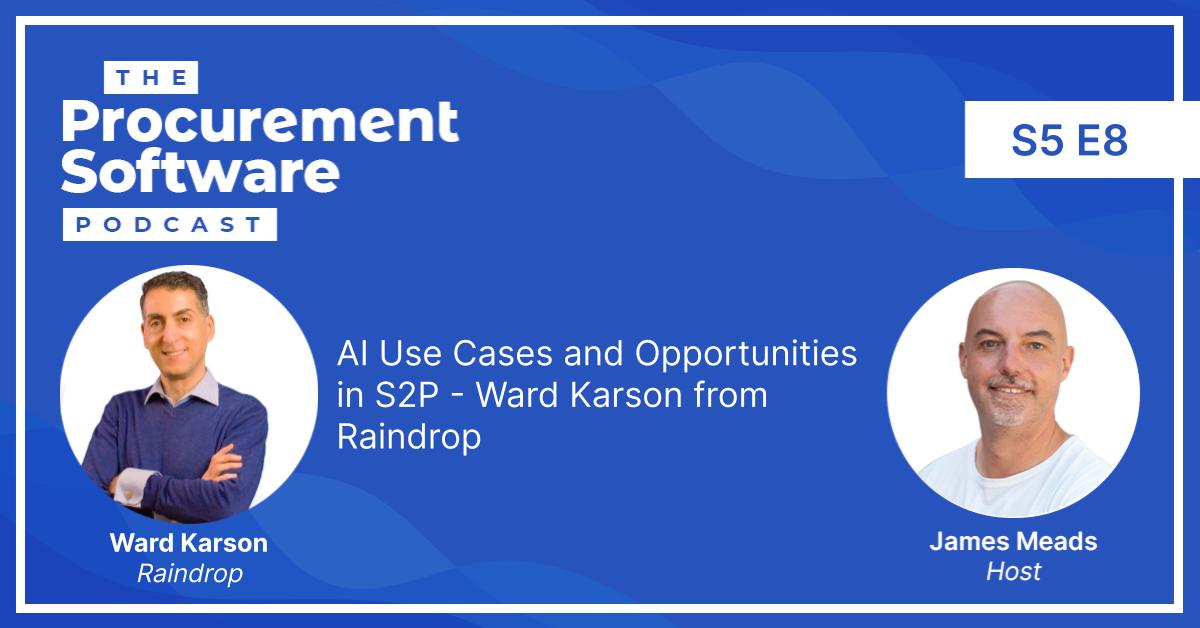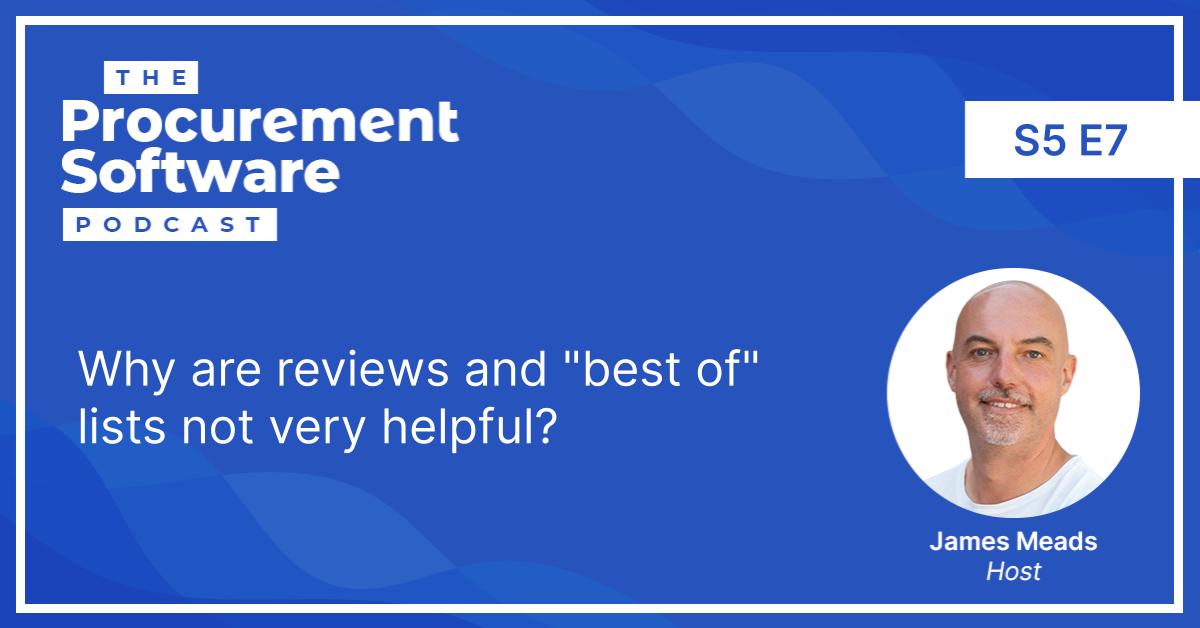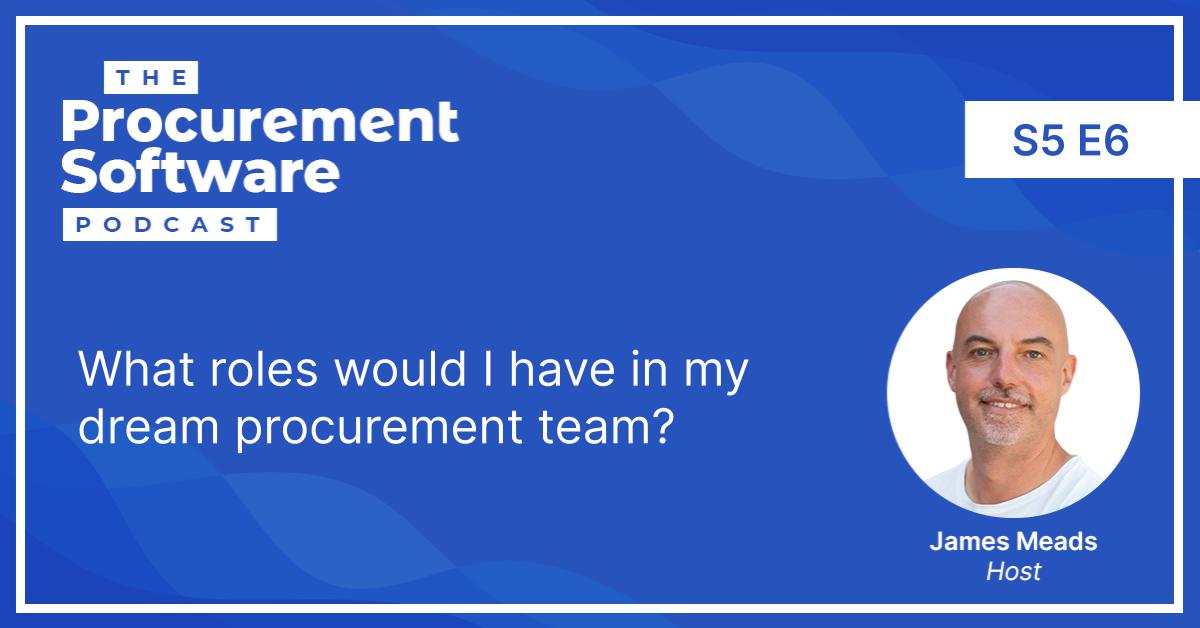We’re back with another Pub episode, where we dive a little bit deeper into a topic than we do in our normal podcasts and really break down a hot topic in a more informal chat format.
My guest for this one is Prof. Dr. Florian Kleemann. He’s a university professor, author of four German language procurement textbooks and also a former consultant. We dive into the topic of how people are a vital factor in change management. A digital transformation project, or orchestrating the changes to make a procurement team fit for the future, are both great examples in this regard.
Getting Your People Strategy Right for Change Management, Digital Transformation and Orchestrating the Procurement Organisation of the Future
We kick off the discussion by me asking Florian how he sees the skill set of procurement professionals evolving as we move forward.
While on the one hand, Procurement will definitely become more robot-driven for some tasks, he sees the function becoming more of a jack-of-all-trades as we expand our remit into other areas and become more versatile as professionals. By this, he doesn’t mean tactical and strategic procurement being mixed, rather the increasing professionalisation and specialisation of procurement as a profession will result in procurement professionals being involved in different areas of the business.
Florian’s 4 key areas for managing change
- Digitalisation
- Innovation
- Resilience
- Agility
Digitalisation should not be seen as the future of procurement in itself: it’s more the enabler to help free up procurement resources to concentrate on more strategic topics.
When considering resilience, we also need to bring in the increasing importance of the sustainability discussion as part of this too.
Touching also on soft skills – selling, influence, persuasion – the type of skills that are often more associated with Sales & Marketing teams, are becoming ever more important to procurement professionals too.
Procurement, as Florian argues, should be seen as a service, but not as servants to our internal stakeholders.
Taking your team on the change journey from process-driven or compliance-driven to a more agile, strategic function will require a change in the skill set but also a change in the mindset. If you’re having to control and beat down your stakeholders to a large extent to keep them in check, then Florian argues that as a procurement team, you have failed to provide a viable strategy and with it, the means of easily and efficiently procuring goods and services.
Start with the most eager or most engaged stakeholders to get some quick wins, and then move on from there.
Can Greenfield Procurement organisations outperform Mature Procurement functions?
I make the example of how many African countries have gone from having no functioning fixed line telecommunications network to jumping a technological generation and rapidly adopting mobile phones. Indeed in Kenya, for example, mobile payments technology is more advanced and more widely adopted than in most European countries.
Could the same apply to Procurement in organisations who are starting a centrally managed procurement team from scratch?
Florian does see some opportunity here, but also argues that if the pace of change is too quick, then it is usually not aligned to the overall corporate goals.
“Strategy following structure, or structure following strategy? In the end, culture eats it all for breakfast”.
What about soft skills and self awareness as part of formal Procurement training?
Florian disappointingly shares that the major professional bodies are not really moving with the times yet and adopting these skills into their training syllabuses.
He also shares the story of how he wrote an article in Germany’s most well-known Procurement and Supply Chain publication about these skills and how they are covered in his syllabus for the course he teaches.
Despite this being published in a popular industry magazine, it didn’t result in many enquiries from the corporate world for their procurement teams to take these courses (even though the program was free-to-access!).
Is it really worth sending Procurement to their 10th negotiation training course, or would it be better to up-skill buyers on soft skills, or trading knowledge with their Sales & Marketing colleagues?
What can corporate organisations learn from elite football teams?
Do we need to move away from seniority-driven salary structures, and the tight bands of salaries which don’t differentiate much between A-players and the rest?
Should we follow football’s example of breaking the bank to hire the superstars?
Procurement professionals who are twice as productive earn should earn twice as much? Probably not, but more performance-oriented formulas should play a bigger role in terms of being able to hire and retain the best talent.
When companies complain about not being able to find the best talent, it’s often due to them not willing to pay the market rate to attract the best people.
What about academies? We discuss whether the “war for talent” will result in corporates adopting an academy structure, or perhaps working with academic institutions to encourage students to take internships with them. Both of these paths can enable companies to screen, nurture and attract talented individuals into their organisation in a more methodical and strategic manner.
How does the desire for purposeful work and personal growth impact this?
We move on from the salary discussion to the non-monetary aspects of career development and finding the right fit.
Whether this is working somewhere that offers more personal growth e.g. for a startup to get more hands-on experience across multiple different areas, or the desire to work in an organisation where you find their mission more impactful or that has a strong focus on values that are close to your heart e.g. sustainability.
Florian shares his own personal example of how he gave up a successful consulting career to go back and do his PhD and then ultimately move into an academic role.
Advice for new graduates in the era of entry-level roles being automated?
In summary, the focus on training procurement professionals of the future will be more conceptual work and less clerical work.
How to raise a requisition or order is no longer relevant to the modern procurement professional. Instead, they need to understand how to formulate a category strategy.
Training and courses such as Florian’s curriculum reflect the reality of the modern day and future procurement function. As time goes on, new entrants to the workforce will reflect that with the skills or educational background they have when they begin their career.
Stay in touch!
- Connect with Florian on LinkedIn
- Sign up for the Procuretech Podcast Newsletter
- Book an Intro Call and let’s talk all things Digital Procurement!
- Connect with James on LinkedIn
- Follow The Procuretech Podcast LinkedIn Page


